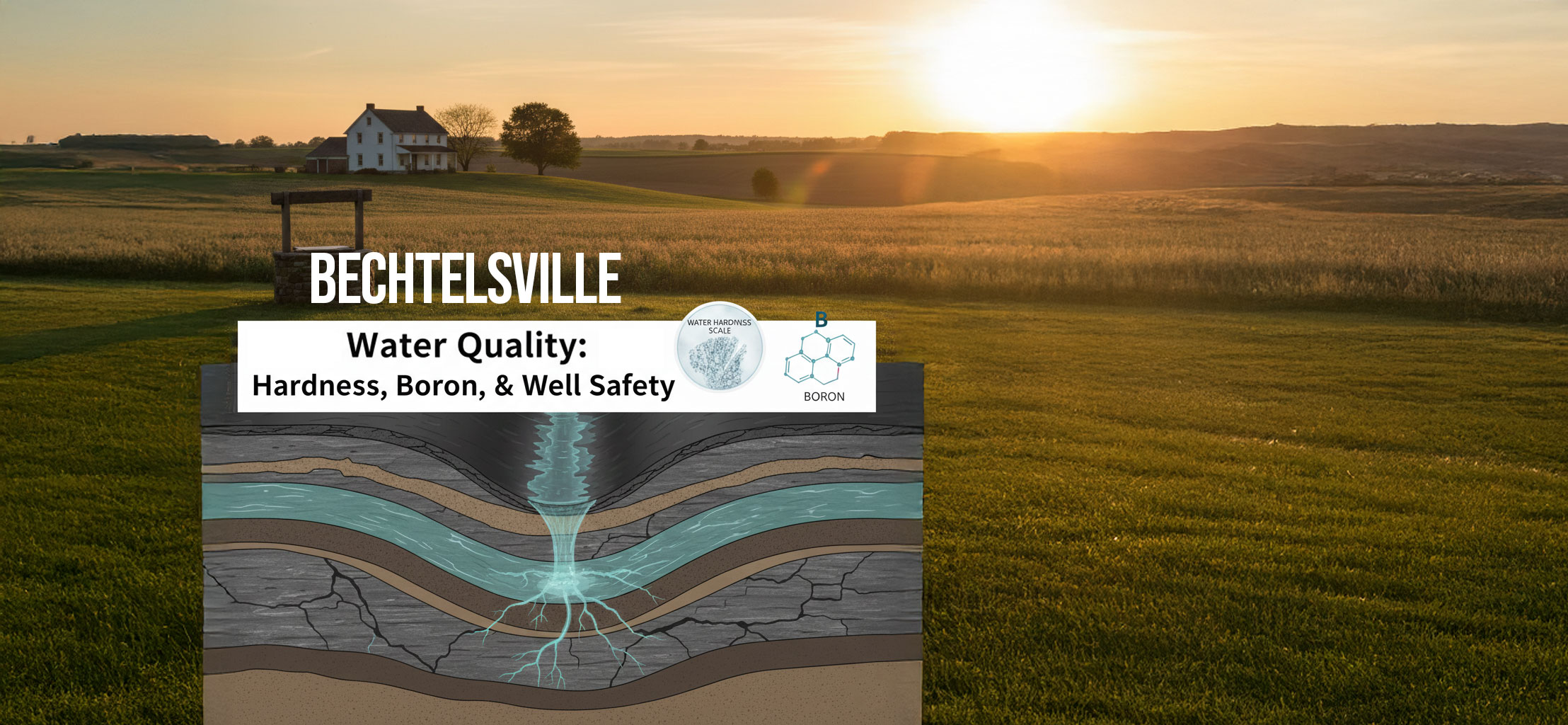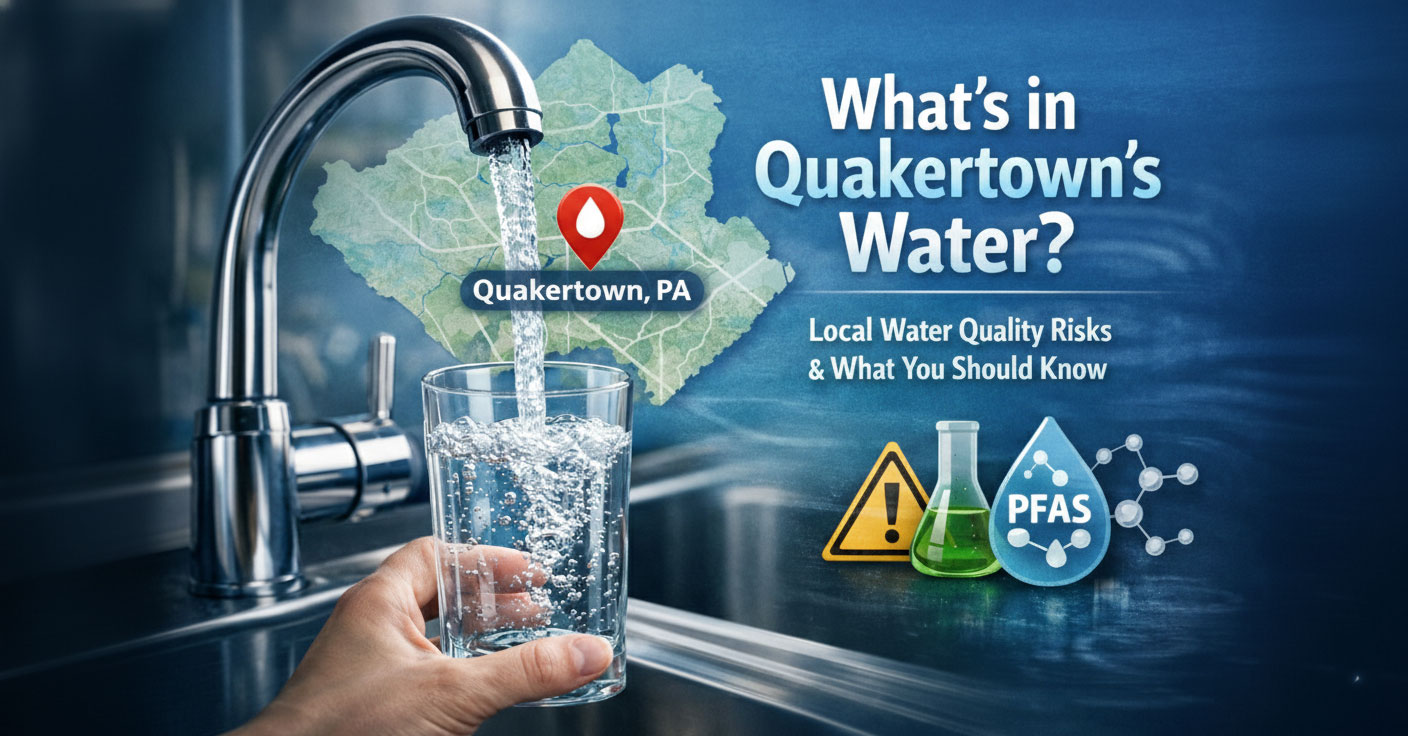If you’ve ever turned on your faucet only to be hit with a strong rotten egg smell, you’re not alone. That unpleasant odor is usually a sign of hydrogen sulfide gas (H₂S) in your water. While it’s easy to dismiss the smell as a nuisance, the truth is, hydrogen sulfide can wreak havoc on your home’s plumbing, appliances, and even your peace of mind.
Whether you’re a long-time well water user or just moved into a home with a private well, here’s what you need to know about hydrogen sulfide—and why it’s more than just a stinky problem.
What Is Hydrogen Sulfide?
Hydrogen sulfide is a gas that occurs naturally in groundwater—especially in areas with high sulfur content in the soil or rock. It’s produced by anaerobic bacteria (bacteria that thrive without oxygen), often in deep wells or plumbing systems with limited circulation.
You’ll most commonly notice it by its distinctive odor, but its effects extend far beyond your nose.
The Hidden Dangers of H₂S in Your Plumbing
1. Accelerated Pipe Corrosion
Hydrogen sulfide becomes acidic when dissolved in water. Over time, it can eat away at metal plumbing—especially iron, steel, copper, and brass—causing leaks, pinholes, and structural damage. If you’ve noticed greenish-blue stains around your fixtures, it may be corrosion from the inside out.
2. Damage to Water Heaters
Most water heaters have a magnesium anode rod designed to prevent tank corrosion. Unfortunately, this rod often reacts with hydrogen sulfide, amplifying the rotten egg smell and corroding your heater faster. You might even notice the smell gets worse after hot water runs.
3. Staining and Build-up
H₂S reacts with metals like iron and copper to form black or gray sulfide deposits. These can:
-
Stain your toilets, sinks, and tubs
-
Clog showerheads, aerators, and filters
-
Reduce water pressure over time
4. Rubber and Plastic Degradation
If your plumbing system uses rubber washers, gaskets, or plastic components, hydrogen sulfide can cause them to become brittle, degrade, or fail, leading to leaks and water waste.
5. Slime and Biofilm Formation
In some systems, sulfate-reducing bacteria can create slimy biofilms inside your pipes and fixtures. These are not only unpleasant but can also host other microorganisms that affect water quality and flow.
What You Can Do About It
The good news? Hydrogen sulfide is treatable with the right water treatment system. Here are some of the most effective solutions:
✅ Activated Carbon Filtration
Great for low levels of H₂S (typically under 1 ppm), these filters trap the gas before it reaches your tap. They’re low-maintenance but may require regular replacement.
✅ Oxidation + Filtration Systems
For higher levels of hydrogen sulfide, oxidation systems—like air injection, chlorination, or hydrogen peroxide—convert the gas into solid sulfur particles that are then filtered out.
✅ Anode Rod Replacement
If the smell is coming primarily from your hot water, consider switching to an aluminum or powered anode rod in your water heater. This swap can significantly reduce odor without sacrificing protection.
✅ Professional Water Testing
Every home is different. A lab-grade water test will tell you exactly what’s in your water—and what kind of system will be most effective for your needs.
Final Thoughts: Don’t Let Sulfur Smell Ruin Your Water Experience
Hydrogen sulfide may start as a bad smell, but over time, it can damage your plumbing, shorten the life of your appliances, and leave unsightly stains in your home. If your water smells off—or if you’re just unsure about your water quality—it’s time to get it tested.
At Dierolf Plumbing and Water Treatment, we’ve helped countless homeowners eliminate hydrogen sulfide and enjoy clean, odor-free water—without sacrificing the health of their plumbing system.
Want to know what’s really in your water?
Schedule a free in-home water test or pick up a complimentary sample bottle today.
📍 Serving Montgomery, Berks, and Chester Counties
💧 Everyone deserves great water. We’ll help you get there.



